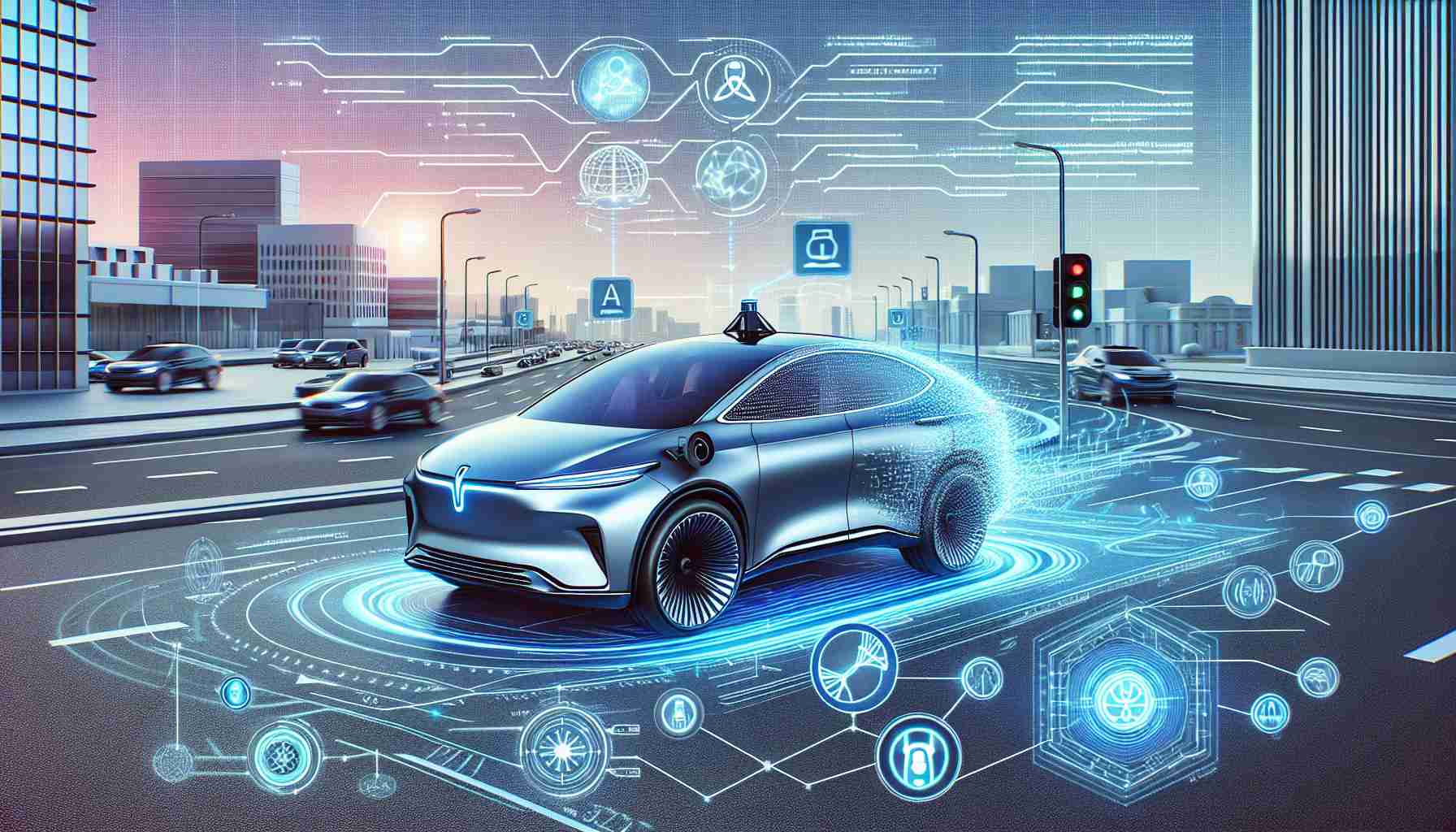Innovation is on the horizon as Toyota’s top scientist, Gill Pratt, explores the potential of generative AI in the realm of autonomous driving. Recently, Pratt shared intriguing insights during a media interview, indicating that future generative AI applications could significantly reduce the data requirements needed to minimize collision risks. However, he recognized public concerns regarding the acceptance of self-driving technology, especially when accidents occur.
Competition in the auto industry is heating up, with manufacturers like Sony and Honda already collaborating with tech giant Microsoft. They are integrating an advanced dialogue system into their upcoming electric vehicle, AFEELA, which aims to enhance user experience by tailoring the vehicle’s environment to drivers’ preferences, while also incorporating self-driving features.
Pratt, who has an impressive background as a former MIT professor and a defense department researcher, addressed the complexities surrounding social acceptance of autonomous vehicles. He suggested that while humans often empathize with errors made by others, it remains uncertain how society will react to failures linked to machines.
As the race for cutting-edge autonomous technologies intensifies, the focus has shifted beyond mere technical advancements. Issues surrounding liability, societal acceptance, and the economic implications of these innovations are becoming critical discussions. It appears that for self-driving technology to gain mainstream acceptance, a broader societal dialogue is essential.
Driving Towards the Future: Tips, Life Hacks, and Insights on Autonomous Vehicles
As the automotive industry evolves with the integration of technologies like generative AI and autonomous systems, it’s important to stay informed about these innovations. Here are some helpful tips, life hacks, and intriguing facts related to autonomous vehicles and the advancements shaping the future of transportation.
1. Stay Informed About Generative AI
Understanding how generative AI influences the safety and efficiency of self-driving cars can empower consumers. Generative AI applications can analyze vast amounts of data to predict and prevent potential collision scenarios, minimizing risks associated with autonomous driving.
2. Be Prepared for the Transition
As autonomous vehicles become more prevalent, adapting your driving habits will be essential. Familiarize yourself with the features of self-driving technology, including how they operate in various environments, so you can transition smoothly into this new mode of transportation.
3. Participate in Discussions
Engaging in community forums or online discussions about the acceptance of autonomous vehicles can help address the public’s concerns. Sharing your thoughts and experiences may contribute to a broader societal dialogue, helping to shape the acceptance of self-driving cars.
4. Explore Multimodal Transportation
Autonomous vehicles are part of a larger transportation ecosystem. Exploring other options like electric scooters, public transport, or bike-sharing can enhance your understanding of how autonomous driving fits into urban mobility.
5. Understand Liability Issues
As autonomous vehicles become widespread, liability questions will surface. Being aware of how liability is assigned in case of accidents involving self-driving technology is essential for consumers and policymakers alike.
6. Embrace the Tech
For those interested in technology, consider experimenting with apps that enhance your driving or commuting experience. Many platforms now incorporate navigation aids, traffic updates, and even predictive analytics that can simulate aspects of autonomous driving.
7. Keep an Eye on Collaborations
Manufacturers like Sony and Honda are leading the charge into the self-driving future by partnering with tech giants like Microsoft. Keeping track of these collaborations can provide insights into the latest innovations and how they may affect vehicle features and consumer experiences.
8. Encourage Transparency
Advocating for transparency in how autonomous technology functions can help alleviate fears and uncertainties in the public. Educating oneself and others about the mechanisms behind self-driving cars can demystify the technology.
Interesting Fact:
Did you know that the first fully autonomous vehicle was developed in the 1980s? The “Navlab” project by Carnegie Mellon University laid the groundwork for today’s autonomous vehicle technology, showcasing how far the industry has come since then.
With the advancements in autonomous vehicle technology and the increasing role of AI in improving safety and user experience, understanding these various facets is crucial for anyone interested in the future of transportation. To learn more about the innovations in the automotive industry, you can visit Toyota’s website or explore Honda’s initiatives in this dynamic field.








